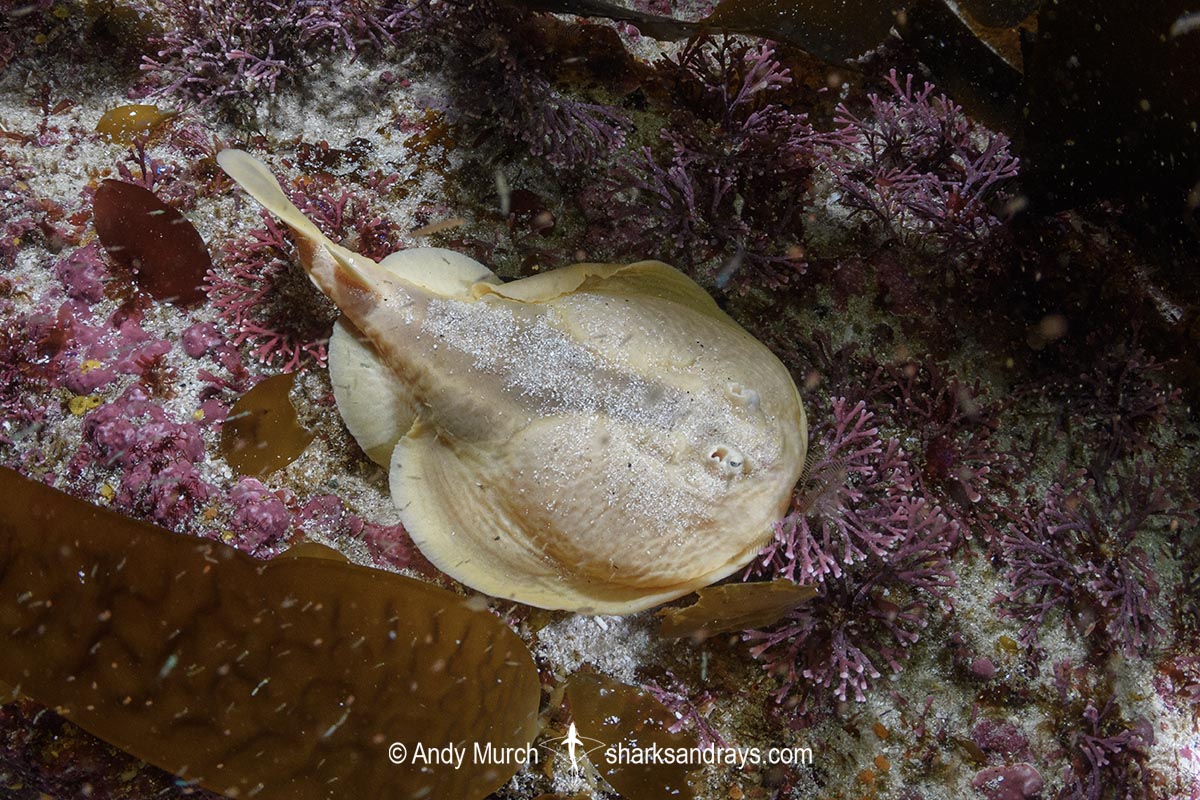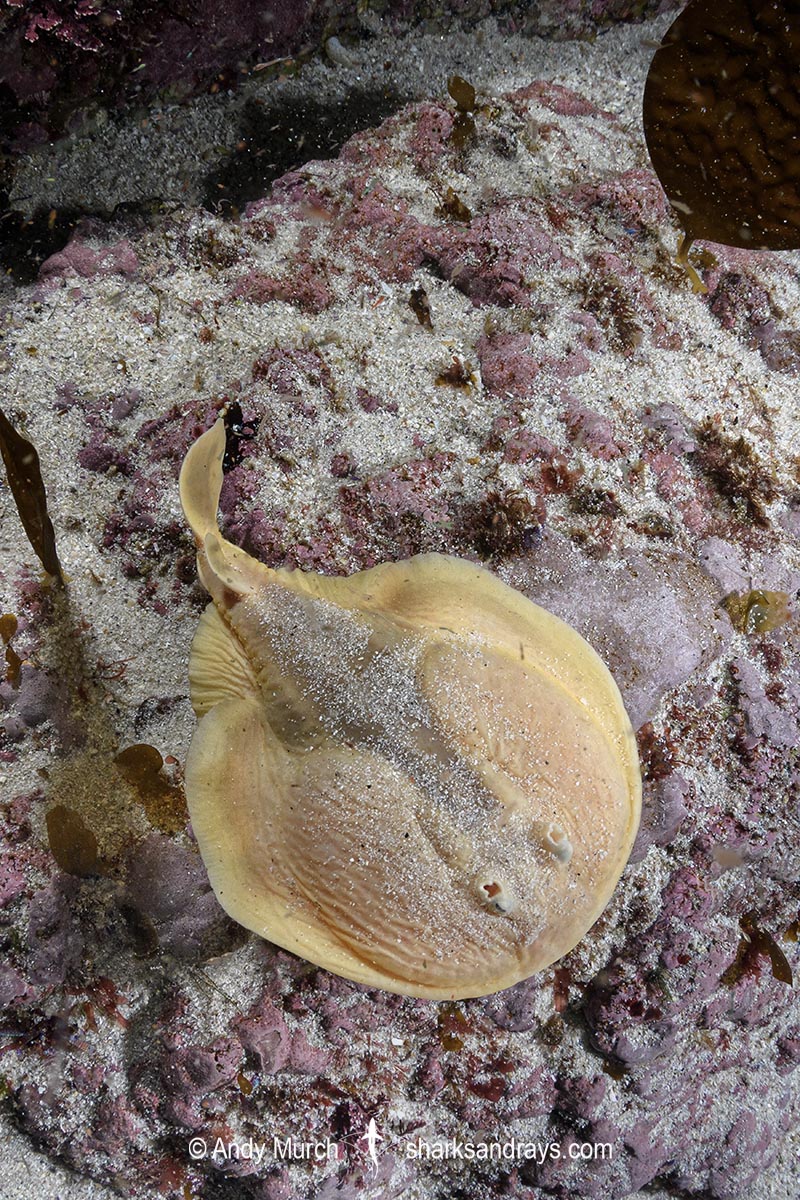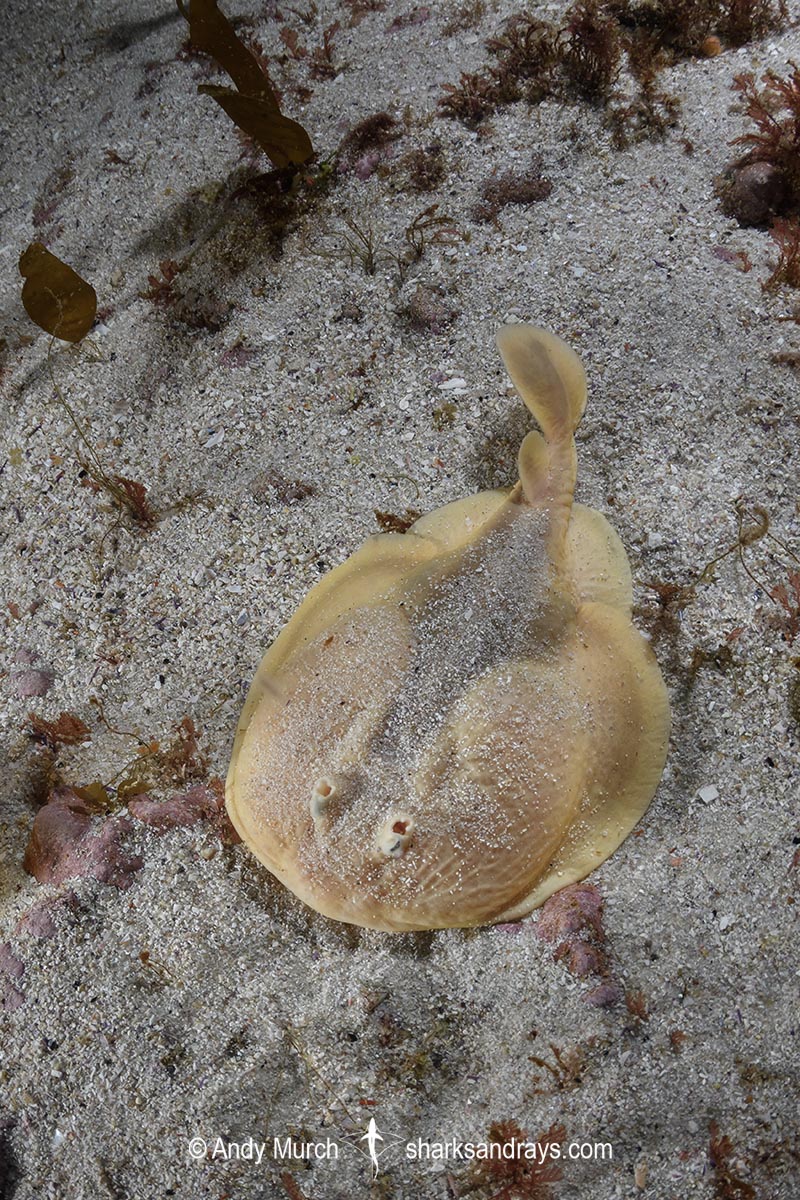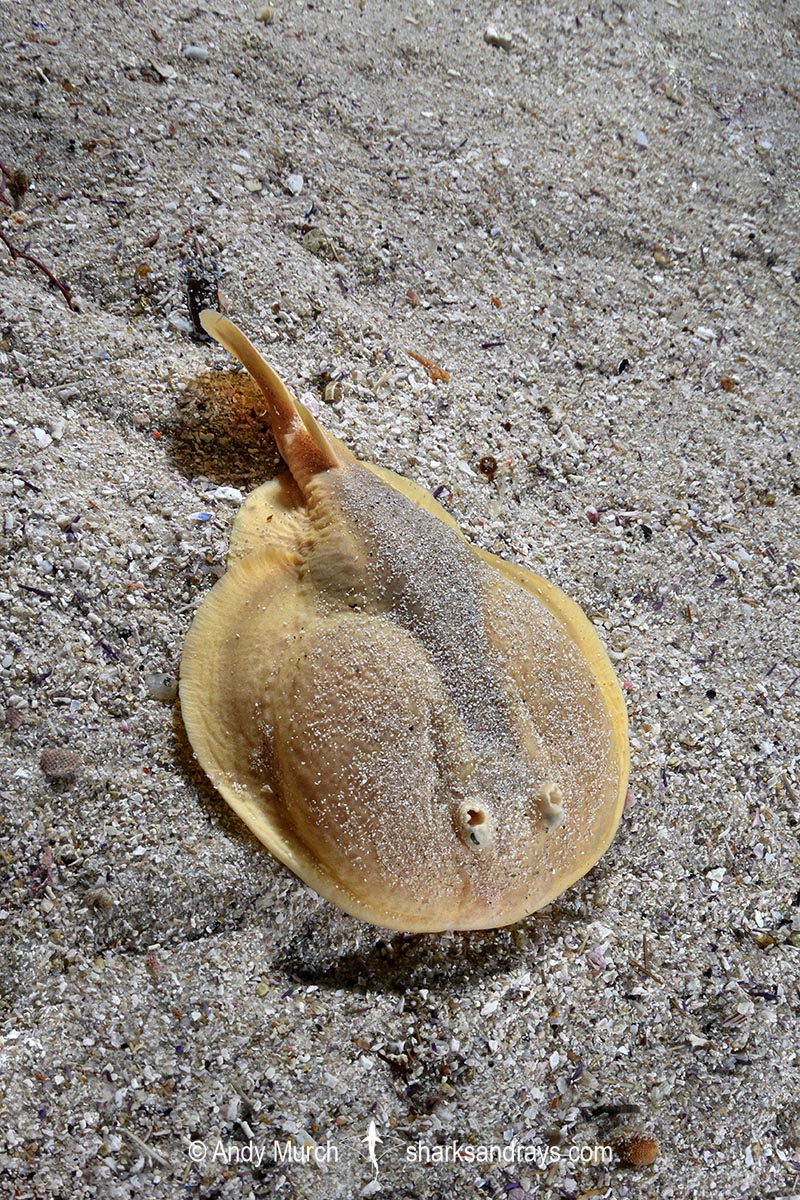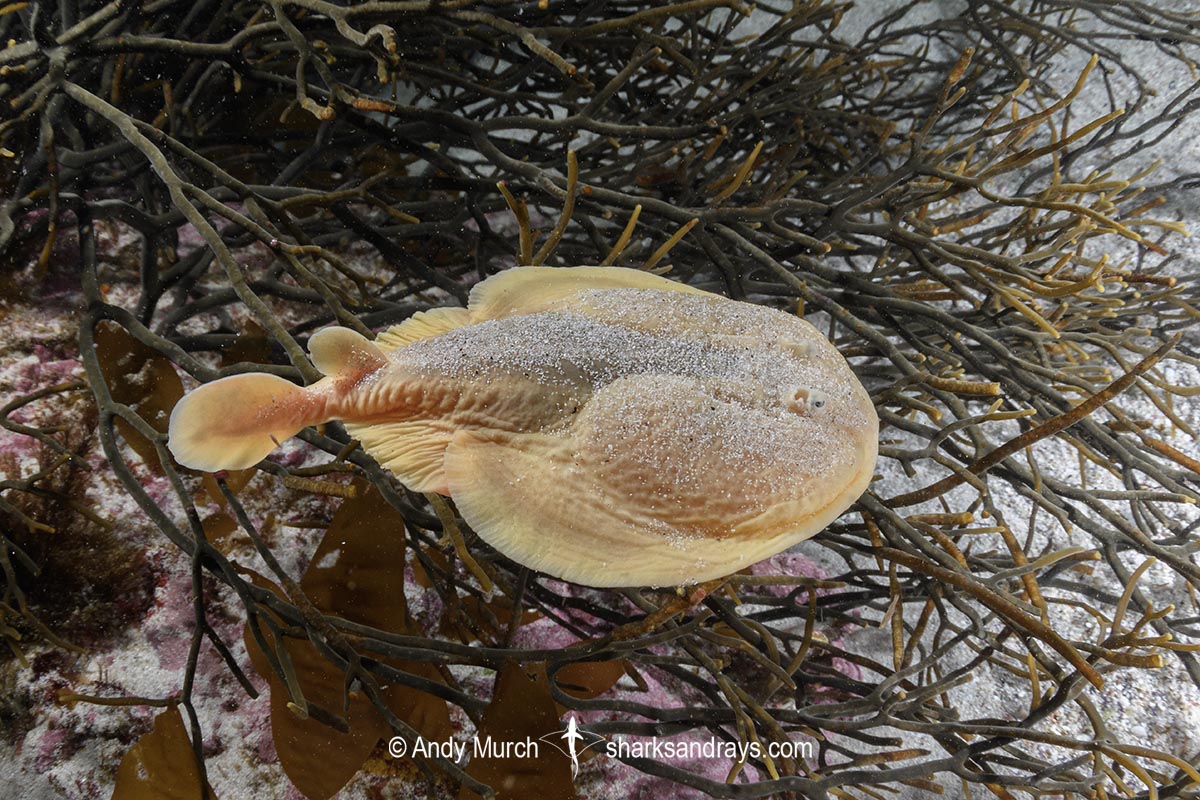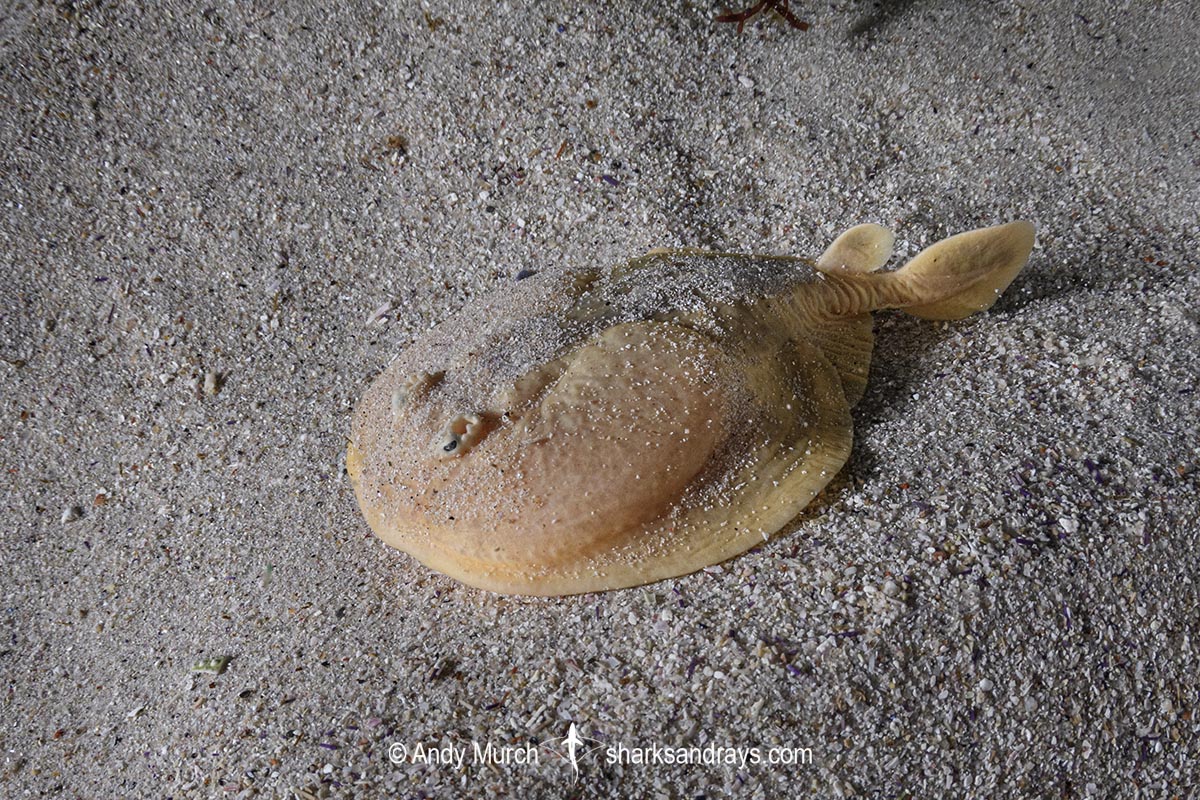Common names
Onefin Electric Ray, Cape Sleeper Ray, Cape Numbfish.
Binomial
Narke capensis.
Synonyms
Astrape capensis, Raja capensis, Raja rapensis, Torpedo capensis.
Identification
A small to medium-sized sleeper ray. Disc sub-circular, slightly longer than wide. Snout short, tip evenly rounded. Pectoral fin apices evenly rounded. Electric organs well defined. Eyes small and somewhat raised. Spiracles larger than eyes. Spiracles kidney shaped, weakly raised above disc with no papillae. Nostrils with small incurrent openings. Nasal curtain short, with deep central and labial grooves.
Pelvic fins broad and long. Tail broad based. Pronounced caudal keel. Single rounded dorsal fin, origin over pelvic fin insertion. Caudal fin oval-shaped, much larger than dorsal fin.
Colour
Dorsum yellow to green-grey. often dusky grey/brown centrally and with large dusky areas on pectoral fins and caudal fin. Ventrum white or cream centrally, dark towards disc margins, margins yellow.
Size
Maximum length 38cm.
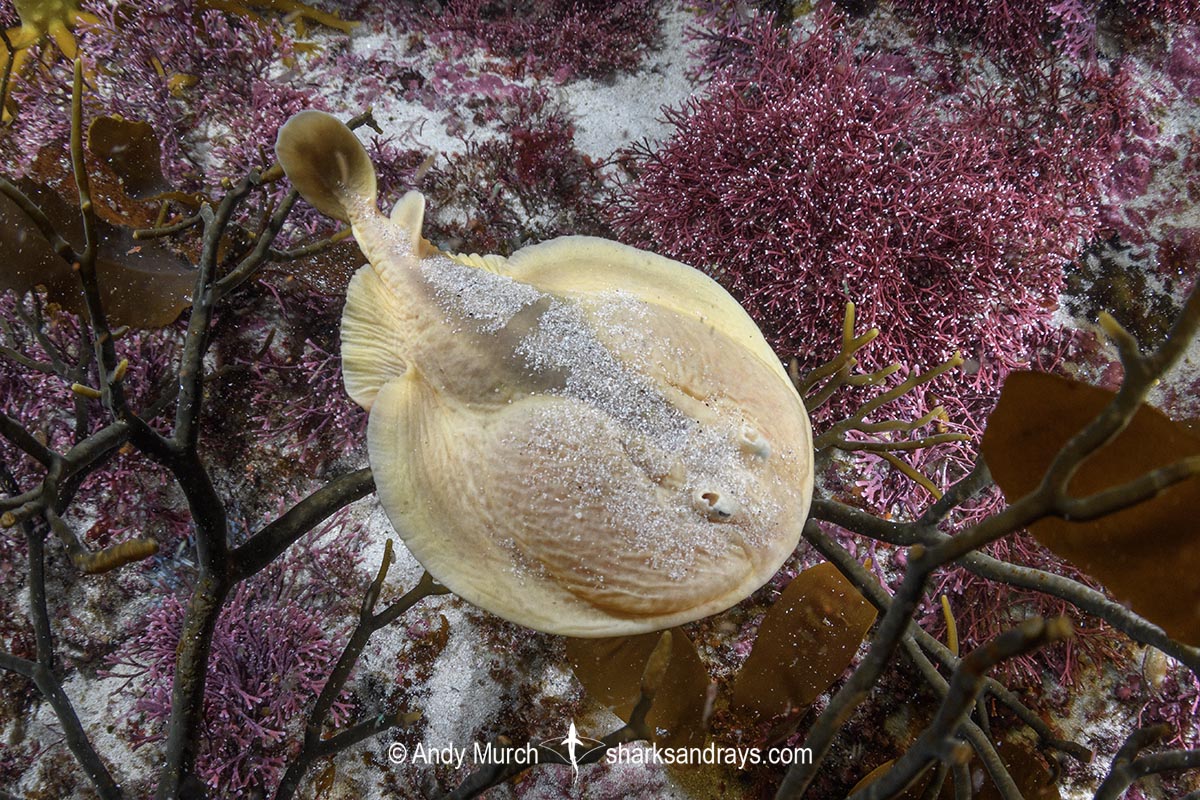
Conservation Status
LEAST CONCERN
The Onefin Electric Ray (Narke capensis) is a bycatch component in trawl and beach nets, but is usually discarded because of its ability to deliver a powerful electric shock when handled.

Habitat
Temperate to sub-tropical seas. Benthic on soft and rocky bottoms. From shallow bays to 115m.
Distribution
South Africa. Western Cape to Natal. Possibly also Namibia, Mozambique, and Madagascar.
Reproduction
Aplacental viviparous.
Diet
Benthic invertebrates.
Behavior
Capable of emitting a powerful electric shock to stun prey and as a defensive tactic.
Reaction to divers
Easy to approach. Generally remains motionless unless harassed.
Diving logistics
Miller’s Point in False Bay is a good spot to look for onefin electric rays. Try searching for rays buried in the sand in ~5m near the shore entry points.
This species is also occasionally seen in bays around Cape Town.
What’s new
View our full list of updates
Similar species
Natal Sleeper Ray – Heteronarke garmani. Distinguishable by two dorsal fins.

